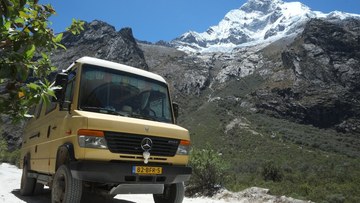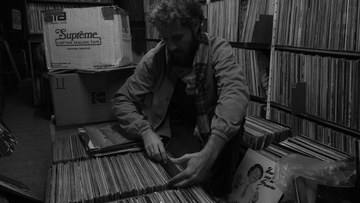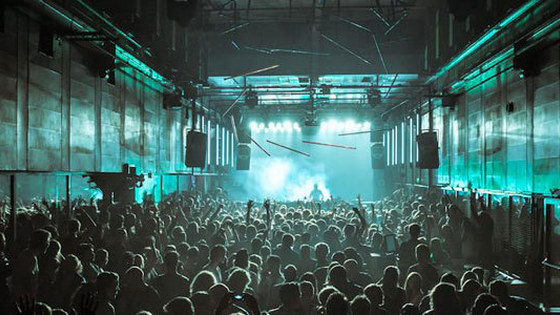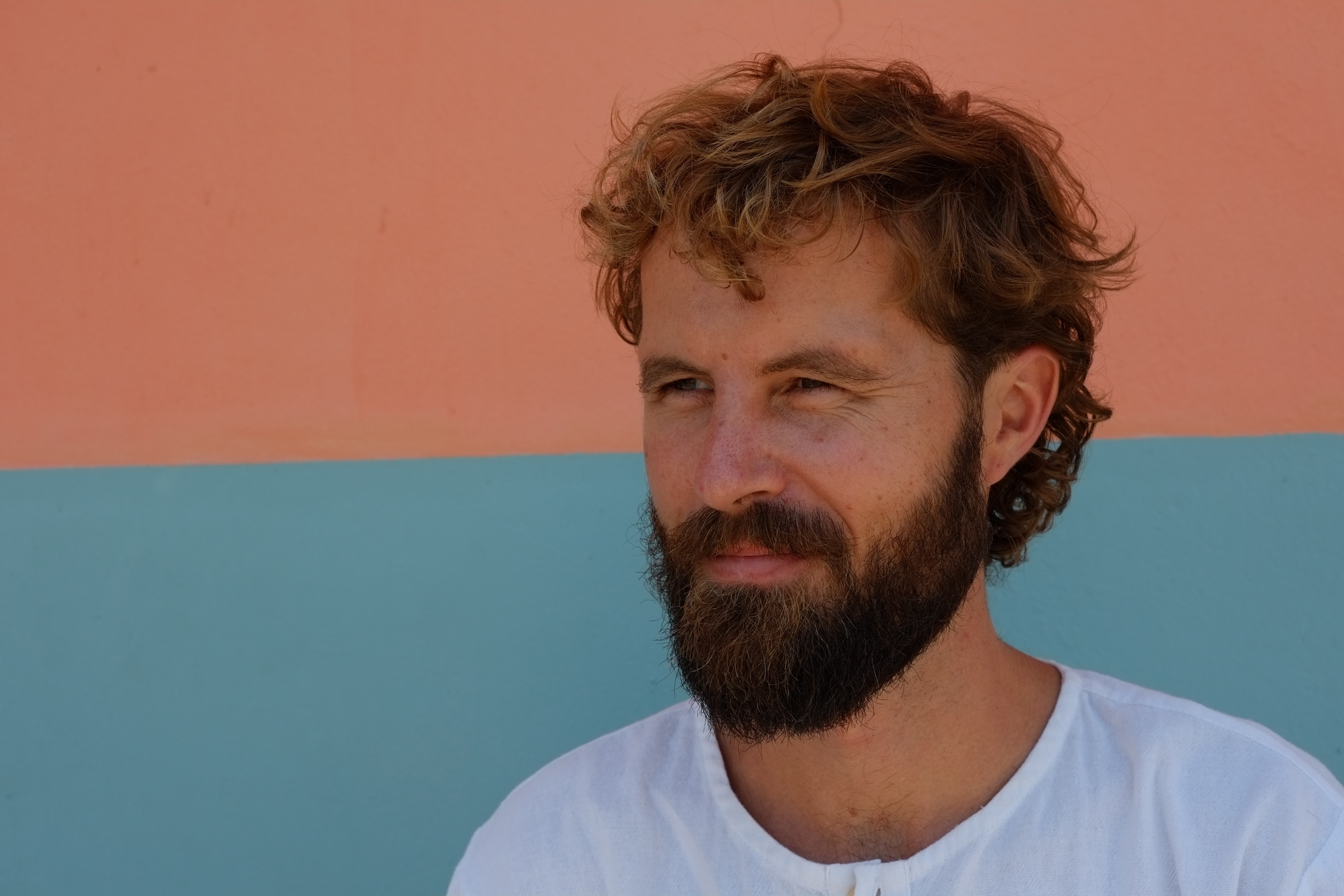I first met Olaf Boswijk in 2013 during the annual ADE event in Amsterdam. I was there in a professional capacity covering the event and where I had found nothing but a cold impersonal business-like atmosphere, Olaf Boswijk and Trouw had opened me up to a completely different world in Amsterdam’s nightlife. They’d shown a sincere devotion in their cause rather than a calculating shrewdness, and it seemed to seep out of every pillar and vestibule in the impressive former printing press that housed the famed club.
Earlier that evening Olaf had taken immense pride in showing a group of us around the club he helped establish and as we talked at length about Trouw and its aspirations it was clear Olaf’s was a musical pursuit and even though the business acumen was clearly evident in what he had established in Trouw and its predecessor 11, music and club culture had formed the underlying purpose to it all.
Through 11 and Trouw, Olaf Boswijk had established two significant eras in Amsredam’s clubbing history, and a legacy that can today be felt through venues like De School and Shelter and through DJs like Young Marco and Job Jobse.
Throughout the last year of Trouw our paths would often cross and Olaf’s was a prominent presence, cropping up in some unlikely places at a diverse array of events. From the aggressively leftfield noise of Ben Frost to the more joyous and transcendent beats of Seth Troxler, Olaf Boswijk could always be spotted in the crowd. The intense musical curiosity behind Trouw’s booking were mostly his and a world created for dance music could just as easily lead to an art music or an indie band. On the rare occasion, when Olaf could, you would also find him in the booth easing into the role of a DJ, where he would play an eclectic warm-up set or create a musical dialogue with a young Job Jobse as they go to and fro.
It was common knowledge that Olaf would hang up his hat after Trouw, but not before setting the wheels in motion for De School, yet another incredible chapter in the 11/Trouw story, but one that would not include Olaf as the yearning of a different life called the Dutch native. Since the end of Trouw, he has been travelling; driving from Canada to Patagonia in a yellow Mercedes bus anointed Balthasar. He’s has been on the road for two years now, documenting his travels with a podcast called Radio Balthasar, a show that narrates the journey through music, interjecting with stories on the road from Olaf’s words. He’s taken his DJ bag along and has been enjoying some regular set times in the booth again too, away from the pressures of running a club.
This summer he’s back in Europe playing Dekmantel amongst other things and as fortune would have it, playing at Jæger, giving me some pretence to call him up. I find him in Cornwall, where he’d “just spending a week with the family”. He’s been “surfing, running around with the kids, and cooking” in the “beautiful countryside” of the UK’s Southwestern coast. I realise it’s been about three years since we last spoke, and as the vague memory of that last encounter starts flooding back, I find Olaf Boswijk visibly relaxed, the same imperturbable presence I had encountered back in 2013 and we simply slip back into a conversation we’d forgotten in the distant past.
The last time I saw I was standing in line waiting to go see, I think it was an all-nighter with Seth Troxler. You were on your way out and I asked if you weren’t staying and you said something like: “no, you’ve got to choose your battles wisely”. And that was about six months before the end of Trouw. What were those last six months like for you?
Wow, that’s a long time ago. They were probably the most intensely beautiful months I’ve ever experienced. I could finally relax more into just being there and enjoy it; spending time with people, rather than always be working.
Did you make up your mind then that you won’t be going back into that world or is that still an open book for you?
I think we already knew a while before then, and as we knew the end day of Trouw was coming up, we already decided to travel. I was already pretty sure that I didn’t want to start a club again. The trip was also very much about letting go of things, process all the memories and experiences. That’s basically what I’ve been doing the last two years, because the trip of a year became two years and now it might become even longer. We’re slowly thinking about the next steps and new projects, but it’s definitely not towards the club life anymore.
You did play a hand in De School’s existence I believe. What was your role in those fundamental stages?
In the last year of Trouw, we were looking within the group of key players and the management for people who wanted to continue the project. I had done my part, and I already said I wasn’t going to take part in the next project. At the same time, just like 11, we wanted the project to continue, to extend the life and always be contemporary.
Part of it was trying to find the right people to form a team and my role was to put them together, making sure they were talking about the right things, and challenging each other to come up with a good idea and a good artistic vision. The other part of my role was finding the building and making sure we actually got a license from the municipality. We were lucky enough that even before we actually opened the door, the mayor already promised us a 24 hour license.
It’s the same company, which was in a large part my company, so I kept half the shares for the first year, and last year I sold everything, so I’m not involved anymore. I still feel very at home there amongst staff and friends – It still feels like family, but I’m not involved.
Getting back to you and travelling and the extent of your journey. What is the purpose of all of this for you?
That’s a good question. In the beginning, it was just travelling seeing the world, having different experiences, and to try to have a more quiet, balanced life. Now, I think we’ve done that and we still love travelling, but the list of places we’d like to visit gets longer the longer we are on the road. More and more it’s become also a form of research as to where we might want to live, and where we might be able to start the next phase of our lives. We have a specific idea for that, but I can’t go into any details just yet.
Something that’s cropped up through your travels is the radio Balthasar show. That’s a really cool show and I’ve enjoyed listening to it, and the way you intersect music with the narrative of your travels. Was that one of the goals before you set off travelling?
 It kind of just happened. I missed working with music, and that was one of the first things I did feel along the trip. I’ve always been heavily interested in making sound recordings. A lot of people that travel, they either blog it or take pictures, and I thought for me, it would be quite natural to make mix tapes of the music we were listening to a lot on the road, and mix it with experiences on the road.
It kind of just happened. I missed working with music, and that was one of the first things I did feel along the trip. I’ve always been heavily interested in making sound recordings. A lot of people that travel, they either blog it or take pictures, and I thought for me, it would be quite natural to make mix tapes of the music we were listening to a lot on the road, and mix it with experiences on the road.
I really enjoyed it, but for me it’s also an incredibly difficult process, getting round to making them, because I have this idea that the music needs to flow and needs to be nice for anybody to listen to. At the same time when I say something it needs to be interesting and meaningful. So it takes me a long time to make them, and I want to make more of them, but it’s hard, because I need to spend to or three days to do them.
Balthasar is also the name of the yellow Mercedes van you drive around. Where is Balthasar at the moment?
It’s in Chile, and in a month’s time we’re flying back to Chile, to take it further south to Patagonia and Argentina, and then maybe back up to Brazil for while.
One thing I found really intriguing was a conversation you had with a man in California about climate change, because within the context of the music it really makes you think about the subject. Do you think bringing an issue like that to light in the context of a radio show and the music, will possibly have more of an effect on the listener?
I hope so. During the trip, climate change has become very real for us, which it wasn’t before. It’s very easy if you live in Amsterdam and in an urban environment to turn a blind eye, because you don’t really experience it. On the trip it became very real and that meeting was the first time I saw an older person being really emotional about it, and talk about how he could take care of his family and kids, and where they would go if things got really bad. That touched me and he recommended some literature, so I started to read some of the books and articles he recommended. That has definitely changed the way I feel about it, and in that way I want to share it with whoever is listening.
The music obviously plays a role in engaging with the listener in the first place. You mention in the first show that it is mainly music from an old ipod that you had rediscovered. Are you also collecting music as you go through these locations?
 Yes, I’m always collecting music, but it’s not in the way that you think. A lot of people have this romantic idea that I’m going to record stores every week and digging South American gems. First of all it’s not like that at all there, there are not that many record stores there apart from the big cities. I don’t have the space for it and I don’t have a record player on the road. I did consider getting a portable record player, but then I got scared, because half the time you just become a digger instead of travelling and all the other stuff that I enjoy. So I’m just collecting music online.
Yes, I’m always collecting music, but it’s not in the way that you think. A lot of people have this romantic idea that I’m going to record stores every week and digging South American gems. First of all it’s not like that at all there, there are not that many record stores there apart from the big cities. I don’t have the space for it and I don’t have a record player on the road. I did consider getting a portable record player, but then I got scared, because half the time you just become a digger instead of travelling and all the other stuff that I enjoy. So I’m just collecting music online.
Has the radio been a constant companion too?
Yes, definitely in North America, NPR is amazing radio, not specifically for music, but definitely just for human interest and news. Some of the South American radio is nice, but I must admit there is just a lot of bland reggaeton stuff out there too.
You’ve been DJing a lot through this trip too, more so than when you were at Trouw even.
Yes, more so. It’s kind of funny. As I said, I was missing music, and I thought perhaps I could just DJ along the way. I got in touch with some people I knew and they put me in touch with some people in Costa Rica, Panama and Columbia, and suddenly I was DJing in those countries.
To me it felt really refreshing to be DJing there, because nobody knew my history. For instance when I was playing at Trouw, there was always this tension or pressure and I didn’t want to play there too often, because I didn’t want to put myself in that position. But now I’m in a position where I feel free, because Trouw doesn’t exist and I’m not the owner of a club anymore, so I feel freer to express myself.
I guess from that people in Europe started noticing, and I don’t know… perhaps what comes from afar looks more attractive, so I got a lot of invitations this summer. Octopus (DJ agency) invited me to join them too, and from that I got a lot of gigs, so I’m having a very busy summer actually.
You must be enjoying it more with the pressures of Trouw not there breathing down your neck while your playing.
Yes, that is something that still makes DJing in Holland harder for me. I enjoy being relatively anonymous, because I still have to focus, and really have to get into it. I’m not an artist that plays three gigs a week, so it’s not quite routine yet. For me it’s still quite new. I’m enjoying riding the wave and we’ll see where it goes.
What are your sets sounding like these days?
My sound has always been quite diverse. I enjoy doing every part of the night, in a sense that I enjoy doing very slow warm-ups; I enjoy moving into Disco; I love playing hours of House; even going into Techno; and finishing with songs.
I think this summer has been good for me, because I’ve been exploring music within my selection, that I haven’t dared to play out, or play in certain combinations. It could be quite different. I’ve played small clubs where I need to keep it a bit warmer and then I’ve played bigger stages where I’ve gone into more Techno (stronger House) territory. I really like that variation.
 You mentioned diversity there and I must admit hew first place I really picked up on an eclecticism in the booth becoming popular was at Trouw. Do you think that was a part of the legacy it left on the DJ scene?
You mentioned diversity there and I must admit hew first place I really picked up on an eclecticism in the booth becoming popular was at Trouw. Do you think that was a part of the legacy it left on the DJ scene?
I think it’s definitely something we contributed to. It’s not something we started as such. Somebody like Antal has always played like this. I remember being 17/18 going to the first Rush Hour parties and he would be playing that set, but today the context is there.
Young Marco has always been playing like this too. He used to do VJ at 11 with Orpheo (the Wizard) from Red Light and Meeus van Dis, and they would do really small parties that nobody went to, but that gave him the opportunity to master his craft.
I do think maybe within Trouw and Dekmantel and Rush Hour, all these forces created a scene where it is appreciated today if you dig deeper and if you follow those really weird Turkish- or African records for example. The scene has been going for a long time so people just tend to look further and further. Yes, in the last two years of Trouw I did see that happening, but it’s become even bigger now.
It just proves that Trouw did indeed leave an immense legacy in Amsterdam to me.
I was Dekmantel a few weeks ago, and it was just incredible the diversity of music and the way the audience just approaches everything, and receives everything is just amazing. I don’t think there is any city in the world like it now.
Yeah, if that’s part of what we’ve done… then I’m pretty happy.
* Olaf Boswijk will be playing alongside Finnebassen next week at Frædag.

